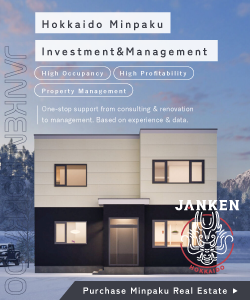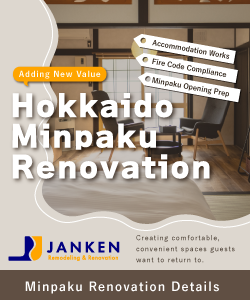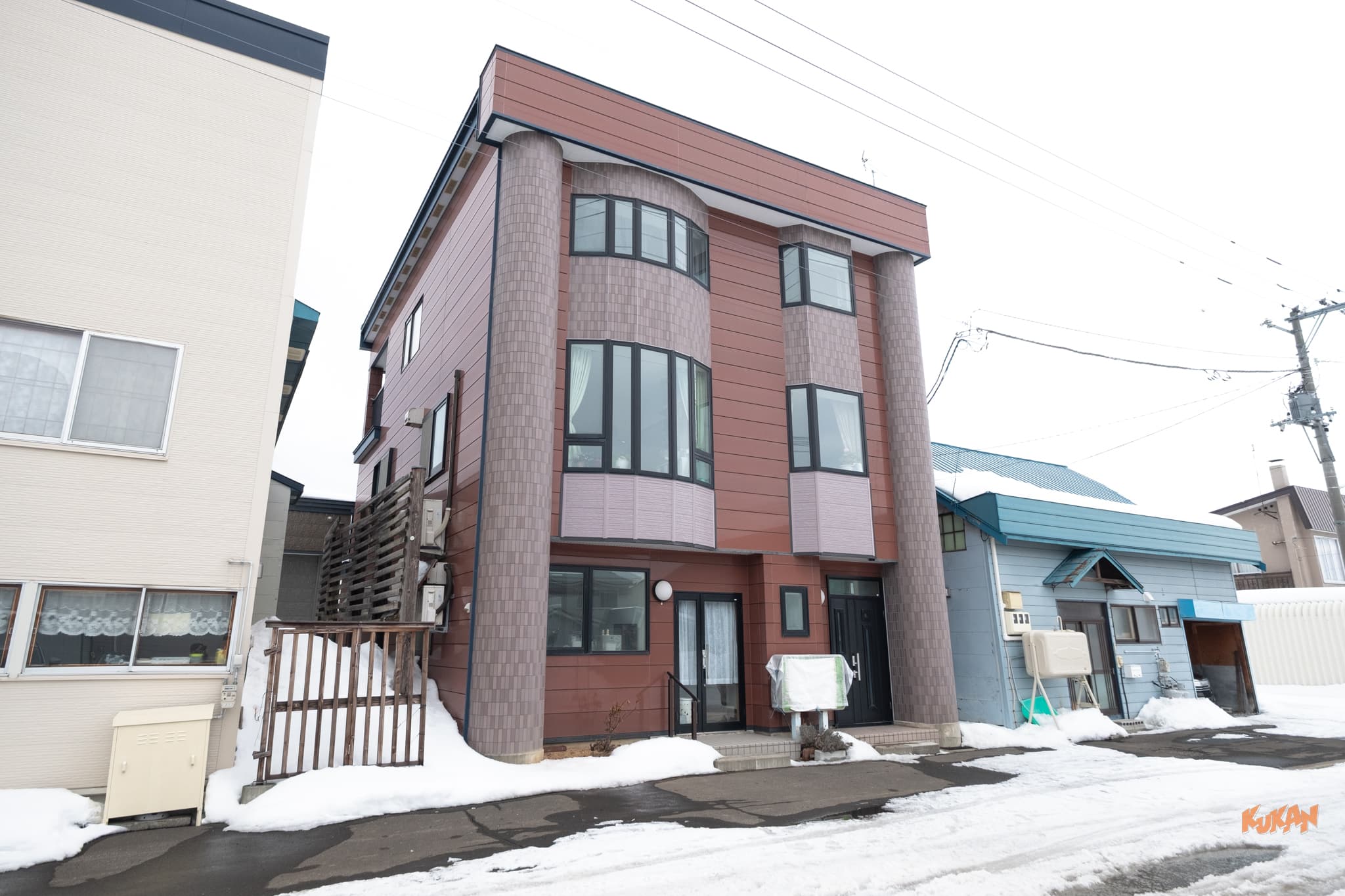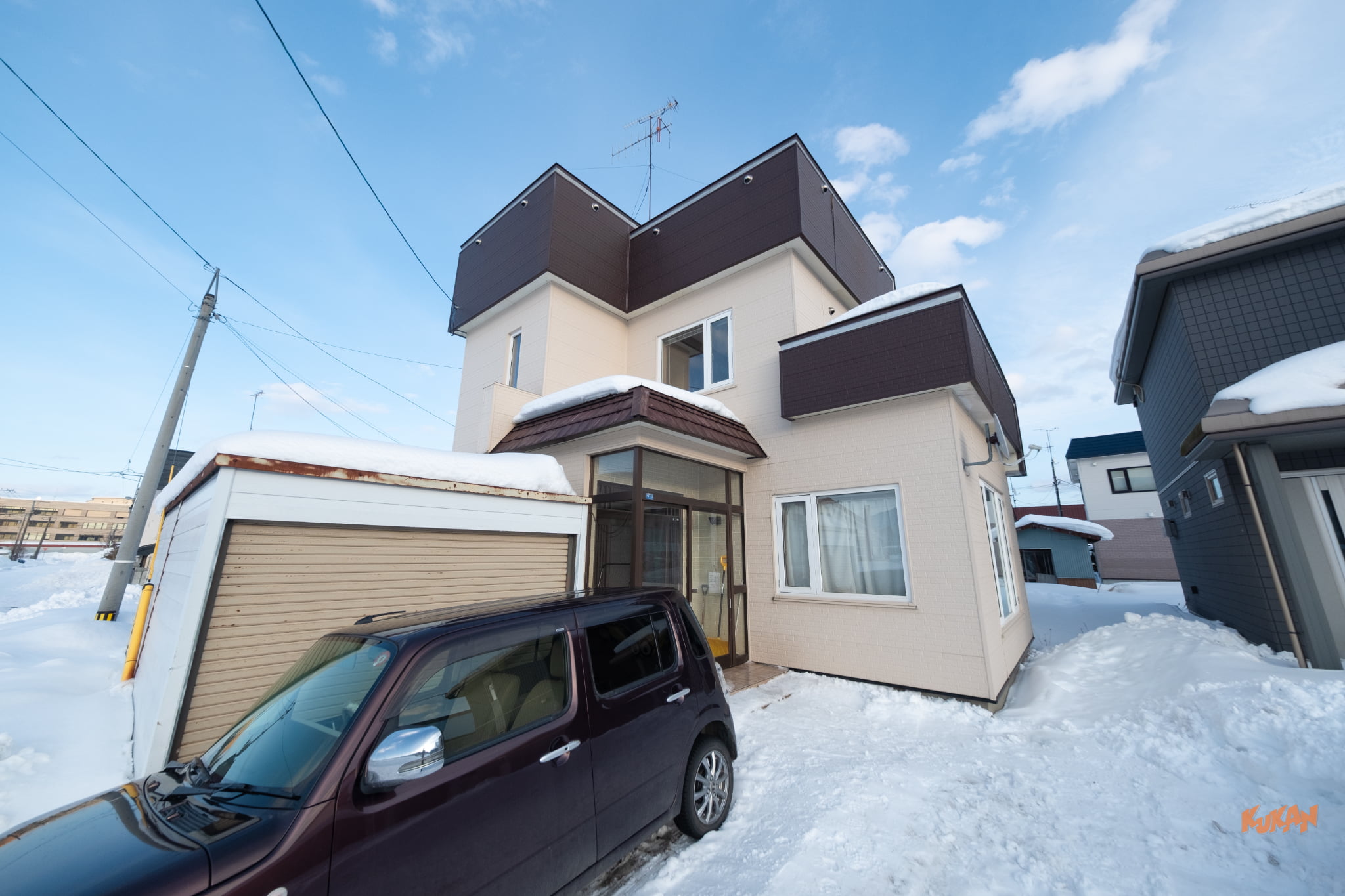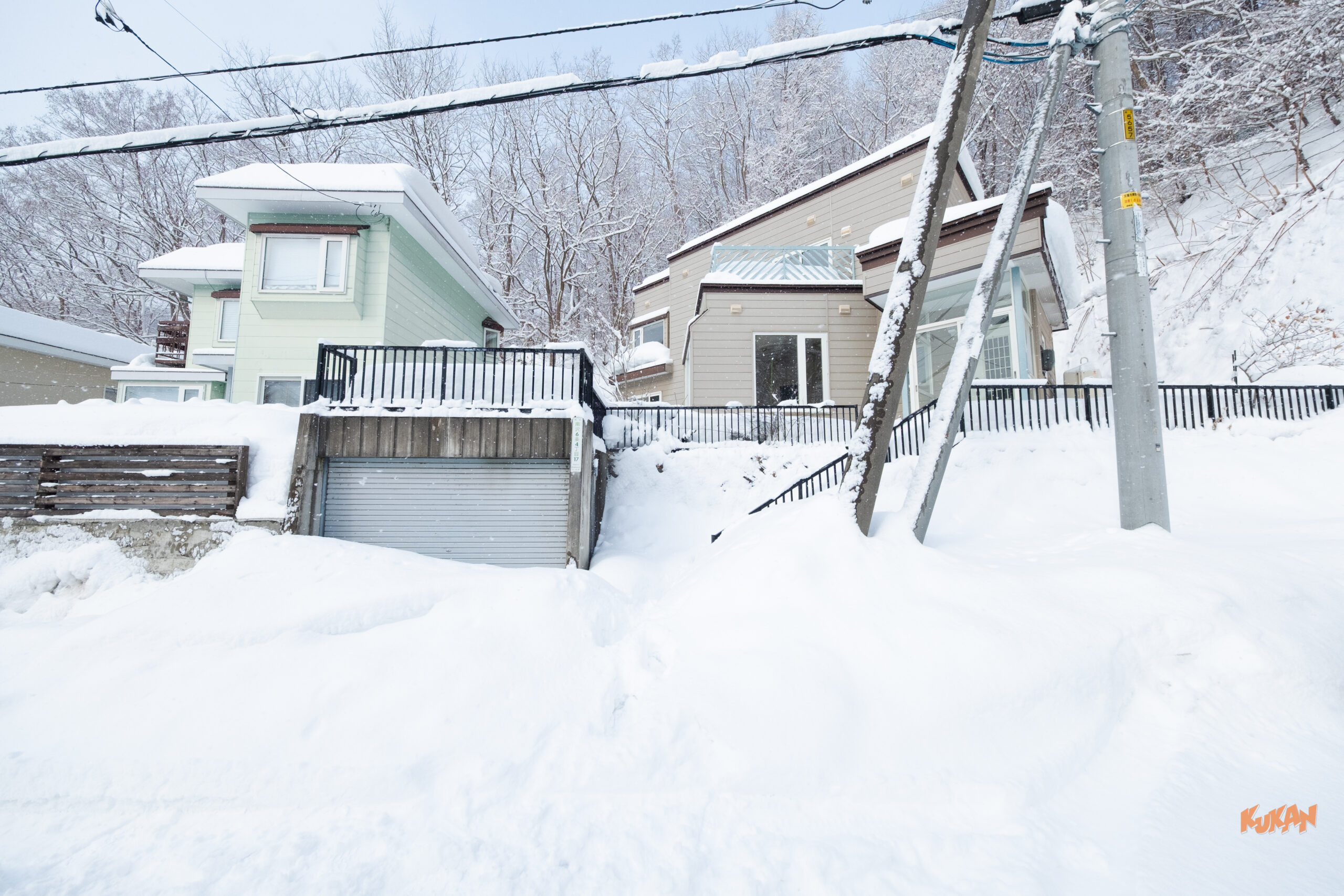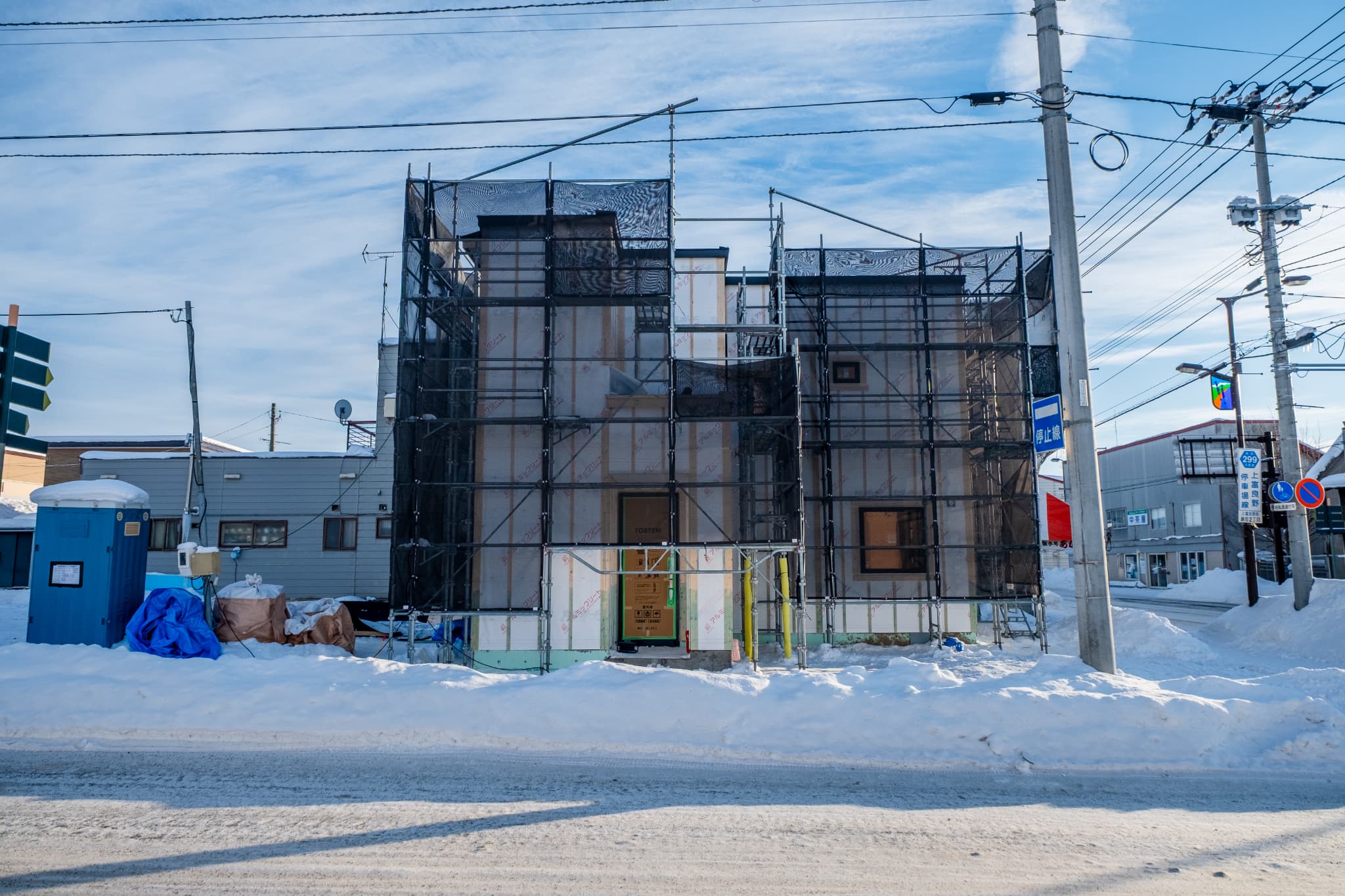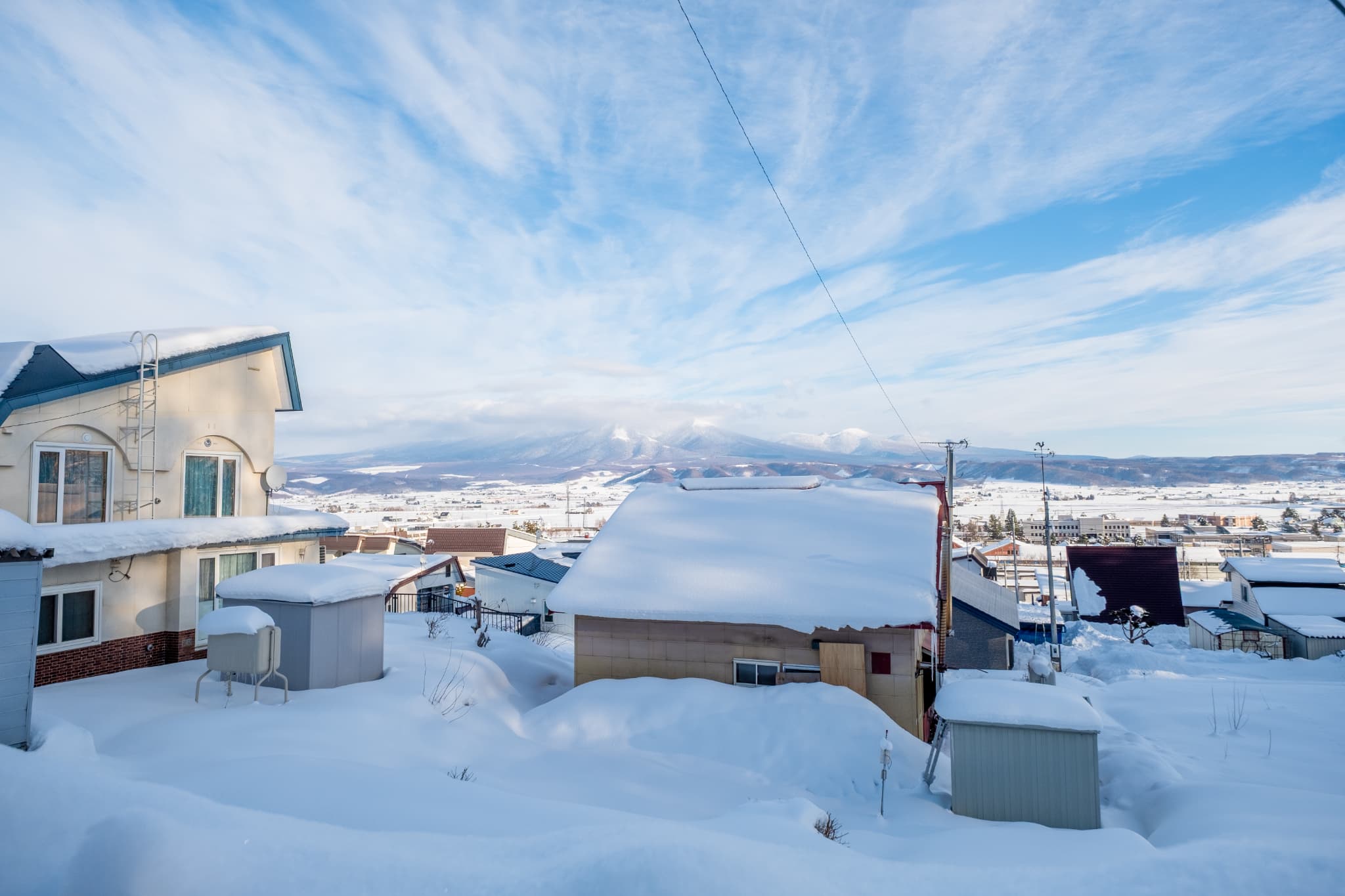Mastering the Art of Starting a Vacation Rental Business: Key Points and Cautions Explained!
2023.12.04

As the global situation with COVID-19 stabilizes, the number of tourists visiting Japan and domestic travelers is on a steady rise.
This trend suggests a burgeoning demand for vacation rentals, potentially piquing the interest of many in starting their own rental business.
In this article, we’ll guide you through everything you need to know about launching a vacation rental venture, including methods for managing properties like apartments and personal residences.
Contents
- 1 How to Start a Vacation Rental Business
- 2 Key Steps to Start Your Vacation Rental Business
- 2.1 1.Area Selection | Starting a Vacation Rental
- 2.2 2.Finding the Right Property | Starting a Vacation Rental
- 2.3 3.Renovating the Facility | Starting a Vacation Rental
- 2.4 4.Preparing Interiors and Amenities | Starting a Vacation Rental
- 2.5 5.Applying for Operating License or Notification | Starting a Vacation Rental
- 2.6 6.Setting Accommodation Rates and Creating Welcome Guides and Usage Policies | Starting a Vacation Rental
- 2.7 7.Registering on Vacation Rental Sites | Starting a Vacation Rental
- 2.8 8.Launching Your Vacation Rental | Starting a Vacation Rental
- 3 Types and Models of Vacation Rentals
- 4 Applying for Different Types of Vacation Rentals in Japan
- 5 Important Considerations for Starting a Vacation Rental Business
- 5.1 1.Not All Areas Permit Vacation Rentals | Considerations for Vacation Rental Operation
- 5.2 2.Check Regulations for Condominium Vacation Rentals | Considerations for Vacation Rental Operation
- 5.3 3.Confirm with Mortgage Creditors if Owning the Property | Considerations for Vacation Rental Operation
- 5.4 4.Be Mindful of Privacy and Theft Risks When Using Your Home | Considerations for Vacation Rental Operation
- 5.5 5.Be Aware of Noise and Neighborhood Troubles | Considerations for Vacation Rental Operation
- 5.6 6.Ensure Proper Fire Safety Equipment | Considerations for Vacation Rental Operation
- 5.7 7.Mortgage Deductions May Not Apply | Considerations for Vacation Rental Operation
- 6 The Pros and Cons of Starting a Vacation Rental Business
- 7 Conclusion: Launching Your Vacation Rental Venture
How to Start a Vacation Rental Business
Vacation rentals involve leasing out residential properties as lodging, but it’s crucial to know that the operation of such facilities is regulated under the “Inn Business Law.” Starting a vacation rental without proper authorization and charging guests is prohibited.
Therefore, it’s necessary to apply and obtain permission beforehand.
Here’s a step-by-step guide to launching your vacation rental business:
- Choose a suitable area.
- Search for the right property.
- Renovate the facilities.
- Prepare interiors and amenities.
- Apply for an operating license or submit a notification.
- Set lodging fees, create a welcome guide, and establish usage terms.
- Register with vacation rental platforms.
- Begin managing your vacation rental.
Key Steps to Start Your Vacation Rental Business
For those interested in Japanese real estate investment, especially in starting a vacation rental business, understanding each phase is crucial.
This article delves into the essential points of each stage, following the flow explained earlier about starting a vacation rental.
1.Area Selection | Starting a Vacation Rental
The key to successful vacation rental management is operating in high-demand areas.
Consider factors like:
- Proximity to the nearest station or airport
- Access to major commercial areas or tourist spots
- Occupancy rates of lodging facilities in the area
- Number of tourists and guests in the municipality
- Booking status of other vacation rentals in the area
Also, check local ordinances, as some municipalities, like Karuizawa Town in Nagano Prefecture, have strict regulations on vacation rentals.
2.Finding the Right Property | Starting a Vacation Rental
After selecting an area, the next step is to find a suitable property. There are four ways to go about this:
a.Through a real estate agency
Allows you to choose a property with guidance, but be aware that not all agencies deal with vacation rentals.
b.Using property portals
These online platforms simplify the search, though many listed properties may not allow subleasing.
Using portals specializing in vacation rentals is a good strategy.
c.Consulting vacation rental management companies
Though it involves fees, these companies often have access to prime properties and are knowledgeable about legal requirements, application processes, and management know-how.
d.Starting in your own home
This can save the effort of finding a property and ongoing costs like rent.
However, if your home is in a rental or condominium building, you’ll need permission from the landlord or the condo management association, respectively.
3.Renovating the Facility | Starting a Vacation Rental
Ensuring comfort for guests is crucial for a successful vacation rental.
Focus on renovating bathrooms and interiors.
For bathrooms, switch to Western-style toilets and separate them from baths, catering to international guests’ preferences.
For interiors, since guests often choose accommodations based on website photos, maintaining cleanliness and periodically updating wallpapers or flooring is essential.
Ensure the facility has a kitchen, bathroom, toilet, and washbasin, as these are the minimum requirements.
4.Preparing Interiors and Amenities | Starting a Vacation Rental
The interior design and amenities significantly influence guests’ choice.
Choose items that align with the room’s theme or concept, ensuring coherence and cleanliness.
Opt for durable and reasonably priced items to balance appeal and budget. Essential amenities include bedding, towels, trash cans, and hangers.
Furnish the place with dishes and cleaning tools to enhance guest comfort.
5.Applying for Operating License or Notification | Starting a Vacation Rental
You must notify the authorities to start your vacation rental business.
The application process and requirements vary depending on the type of vacation rental.
For detailed explanations on types of vacation rentals and application procedures, refer to the sections “Types of Vacation Rentals” and “How to Apply for Vacation Rentals.”
6.Setting Accommodation Rates and Creating Welcome Guides and Usage Policies | Starting a Vacation Rental
Before launching your vacation rental, set accommodation rates, create welcome guides (instruction booklets), and establish usage policies.
Vary rates between peak and off-peak seasons, with higher prices during long vacations like spring break, summer holidays, and New Year’s.
Consider including house rules, emergency contacts, and local attraction guides in the welcome guide.
Providing this guide in multiple languages, including English, Chinese, and Korean, is advisable.
Create clear policies on check-in/out times, prohibited activities, and cleaning arrangements, focusing on avoiding disturbances to neighbors.
7.Registering on Vacation Rental Sites | Starting a Vacation Rental
To reach potential guests, register your property on vacation rental websites. There are three key tips for effective listings:
a.Choose memorable photos.
:Guests often select accommodations based on images. Ensure cleanliness and visual appeal in your photos to leave a lasting impression.
b.reate simple yet captivating titles.
:Make your listing stand out with clear and engaging titles. Incorporate local attractions and unique features of your property, like “10-Minute Walk from Asakusa! Hot Spring Inn XX.”
c.Accommodate multiple languages.
:Many vacation rental users are international, so include English, Chinese, and Korean versions. While translation tools are helpful, consider professional checks to avoid unnatural phrasing.
8.Launching Your Vacation Rental | Starting a Vacation Rental
Now, you’re ready to start managing your vacation rental.
The process from preparation to operation can take several months to half a year.
Key tasks include maintaining the property and fire safety equipment, managing and improving operations, handling finances, and advertising.
Furthermore, you’re required to report the following to the prefectural governor every two months:
- Number of nights stayed
- Number of guests
- Total guest nights
- Nationality breakdown of guests
Failure to report or submitting false reports could result in fines up to 2,018.40 dollars(30,000 yen) so be diligent in your compliance.
Types and Models of Vacation Rentals
Starting a vacation rental in Japan involves various procedures, including permission applications and notifications.
However, there are different models of vacation rental operations, each requiring a specific approach and set of applications.
In this section, we will explain the types of vacation rentals recognized in Japan:
1.Inn-type Vacation Rental
2.Special Zone Vacation Rental
3.New Law Vacation Rental
(Furthermore, we will also discuss the categories of owner-occupied and non-owner-occupied types.)
Reference: “What is a Vacation Rental?” from Minpaku Hajimeni
1.Inn-type Vacation Rental: Ideal for Full-Year Operation!
The key feature of an inn-type vacation rental is that there are no restrictions on the number of operating days per year.
The major advantage is the ability to operate throughout the year.
However, disadvantages include:
- Certain areas might not permit operations under the Inn Business Law due to zoning laws, building standards, and local ordinances.
- Municipal permission is required, with restricted operational areas.
- Constant staffing or a front desk might be needed (mandatory for “Inn/Hotel Business”).
- It may require changing the building’s designated use to “Hotel or Inn” under the Building Standards Law, possibly involving extensive renovations and applications.
Inn-type vacation rentals are classified under the Inn Business Law into “Inn/Hotel Business” and “Simple Lodging Business.”
- Inn/Hotel Business
: Accommodating guests in individual rooms, typically for families or groups of friends (e.g., business hotels or inns). - Simple Lodging Business
: Accommodating multiple groups in a shared space (e.g., capsule hotels or guesthouses).
Each type has different facility requirements. It’s advisable to choose based on the property’s structure, amenities, and local demand.
2.Special Zone Vacation Rental: Targeting Foreign Guests!
Special Zone Vacation Rentals, officially known as “National Strategic Special Zone Foreign Resident Facilities Management Businesses,” are exempt from the Inn Business Law if they specifically cater to foreign tourists.
While rules vary by municipality, the main advantages are:
- No annual operational day limits.
- No requirement for constant staffing or a front desk.
- Lower construction-related requirements under the Building Standards Law.
The main disadvantages include:
- Limited to certain municipalities.
- A minimum stay of 2 nights and 3 days is required per group.
The municipalities eligible for Special Zone Vacation Rentals are:
- Ota Ward, Tokyo
- Chiba City, Chiba Prefecture
- Niigata City, Niigata Prefecture
- Osaka City, Osaka Prefecture
- Yao City, Osaka Prefecture
- Neyagawa City, Osaka Prefecture
- Kitakyushu City, Fukuoka Prefecture
3.New Law Vacation Rental: Start with Just a Notification!
New Law Vacation Rentals operate under the “Housing Accommodation Business Act” (New Vacation Rental Law) enacted in June 2018.
The main feature of this model is that it can be started with just a notification, making it relatively easy to commence.
Advantages include:
- Only a formal review is required, enabling a relatively quick start.
- No additional construction work is needed if the property has a kitchen, toilet, bathroom, and washbasin (shared bathrooms and toilets with the host are acceptable).
- Operations can be conducted without changing the building’s use under the Building Standards Law, reducing the need for extensive construction work.
Disadvantages are:
- Limited to a maximum of 180 operational days per year, making it less suitable for full-fledged vacation rental businesses.
- Some municipalities have specific restrictions, such as prohibiting weekend operations.
- If the property owner is not residing (non-owner-occupied type), it’s mandatory to delegate management to a registered housing accommodation management company.
- The property must be residential, not commercial.
Given these limitations, New Law Vacation Rentals are more suited for side businesses utilizing spare space in one’s home rather than for generating substantial income.
4.Owner-Occupied and Non-Owner-Occupied Types in New Law Vacation Rental
New Law Vacation Rentals are categorized into owner-occupied and non-owner-occupied types.
The owner-occupied type refers to situations where the owner resides in the property used for vacation rental or stays there while guests are present.
This applies not only to part of a residence but also to vacation homes not used regularly.
However, the owner’s presence during guests’ stay is mandatory, with temporary absences generally limited to one hour. If these conditions are not met, it falls under the non-owner-occupied type.
For non-owner-occupied vacation rentals, it’s necessary to delegate management to a registered housing accommodation management company, so be mindful of this requirement.
Applying for Different Types of Vacation Rentals in Japan
In this section, we explain the application processes for the three types of vacation rentals outlined in “Types and Forms of Vacation Rentals”:
1.Inn Business Vacation Rental
2.Special Zone Vacation Rental
3.New Law Vacation Rental
1.Inn Business Vacation Rental Application
The steps to start an Inn Business Vacation Rental include:
a. Preliminary consultation
b. Application for permission
c. Facility inspection
d. Receipt of permission and business commencement
a. Preliminary Consultation
Most municipalities require a preliminary consultation at the Inn Business Law office before applying.
This consultation checks if the vacation rental meets the registration requirements, including:
- Property location
- Facility blueprint
- Compliance with the Building Standards Law
- Compliance with the Fire Service Law
- Apartment complex rules (to ensure vacation rentals are not prohibited)
Refer to pages 10 and beyond of the following document for more details:
b. Application for Permission
The application requires submission of specific documents and a fee, including:
- Application form
- Blueprint of the facility
- Other documents stipulated by municipal ordinances
Forms and required documents vary by municipality, so it’s crucial to check in advance.
c. Facility Inspection
Health office staff inspect the property to confirm it meets structural and facility standards.
Be aware that municipalities may have unique standards.
Note: Simple lodging businesses are characterized as facilities mainly for shared use by multiple people. Facilities with rooms that can only accommodate one person do not qualify.
d. Permission and Business Commencement
Once approved by the health office, you can start the business.
The period from application to approval typically spans several weeks.
Plan your launch date accordingly.
Starting a vacation rental without following these steps can lead to penalties under the Inn Business Law.
2.Special Zone Vacation Rental Application
To start a Special Zone Vacation Rental, follow these steps:
a. Preliminary consultation
b. Creation of a notice document for neighbors
c. Application for permission
d. Facility inspection
e. Receipt of permission and business commencement
The procedure may vary by municipality, so please inquire directly with the relevant local government office.
a. Preliminary Consultation
Prepare property blueprints and consult with the Public Safety Division (or its equivalent) and the fire department of the municipality. They will provide appropriate advice based on your plans.
b. Creating a Notice Document for Neighbors
Some municipalities require the agreement of neighboring residents for vacation rental operations. Be aware of any local ordinances that mandate informing neighbors or holding explanatory meetings.
c. Application for Permission
Typically, you need to submit documents and pay a fee, including:
| For individuals | For corporations |
|---|---|
| Application Form | Application Form |
| A copy of the Residence Certificate | Articles of Incorporation or Certificate of Registration of Donations and Registered Matters |
| Terms and Conditions of Lease Agreement and Related Contracts | Terms and Conditions of Lease Agreement and Related Contract |
| Blueprints and Diagrams Showing Facility Structure and Facilities | Blueprints and Diagrams Showing Facility Structure and Facilities |
Note that required documents vary between individuals and corporations and depend on the municipality.
d. Facility Inspection
A municipal department will conduct an on-site inspection.
Following the guidance from the preliminary consultation should ensure compliance.
e. Permission and Business Commencement
Once approved, you can start your business.
The process from application to approval usually takes a few weeks.
3.New Law Vacation Rental Application
For New Law Vacation Rentals, submit the necessary documents at a portal site or the health office to start operations. Required documents include:
- A written oath of no disqualification
- A property registration certificate
- Advertising or other proof if the house is classified as “a dwelling seeking occupants”
- Proof documents if the house is classified as “regularly provided for the residence of its owner, lessee, or sub-lessee”
- Property blueprints (layout, location of facilities, entrances, floors, rooms/bedrooms, and area for guest use)
- Consent document from the lessor if you are a lessee
- Consent document from the lessor and sub-lessor if you are a sub-lessee
- Copy of the rules (to ensure subletting isn’t prohibited)
- Proof document from the management association if rules don’t specify about vacation rental business
- Copy of document issued by the management company if management is delegated
- Mayor’s certificate proving you haven’t been declared bankrupt without rehabilitation
For individuals:
- Legal representative’s registration certificate if the representative is a minor and the legal representative is a corporation
For corporations:
- Articles of incorporation or deed of donation
- Mayor’s certificate proving the officers haven’t been declared bankrupt without rehabilitation
Download the notification form from the vacation rental system portal site here:
Method of Using the Vacation Rental System | Vacation Rental System Portal Site “minpaku”
Check with each municipality for the relevant health office department and additional necessary documents:
Important Considerations for Starting a Vacation Rental Business
Before launching into the vacation rental business, it’s crucial to understand the potential challenges and legal constraints.
This will help you navigate risks effectively and ensure smooth operations.
Here, we highlight seven key points every aspiring vacation rental entrepreneur should consider:
1.Not All Areas Permit Vacation Rentals | Considerations for Vacation Rental Operation
Your efforts in preparing for vacation rental operations might go in vain if local regulations prohibit such activities.
Some municipalities restrict the operation periods or specific areas where vacation rentals are allowed.
It’s essential to check the local ordinances of your intended area first.
We recommend using this site for reference: Information & Contact Guidance for Each Municipality (Ordinance Status, etc.) | “minpaku” Vacation Rental System Portal Site.
2.Check Regulations for Condominium Vacation Rentals | Considerations for Vacation Rental Operation
If you plan to use a condominium unit for vacation rental purposes, you must check the building’s rules and regulations.
Sometimes, vacation rentals might be explicitly or indirectly prohibited under terms like “intended for residential use only.”
Also, the New Law on Vacation Rentals stipulates that if the rules prohibit non-residential use, vacation rentals are not allowed.
Even if the regulations initially prevent vacation rentals, negotiating with owners or managers might lead to changes allowing such operations.
3.Confirm with Mortgage Creditors if Owning the Property | Considerations for Vacation Rental Operation
Financial institutions typically provide housing loans under the assumption of regular residential use.
If you’ve purchased a property with a mortgage and are considering using it for vacation rentals, it’s crucial to consult with the lending institution beforehand.
Unauthorized operation can lead to contract violations and potential demands for immediate full repayment.
If you’re planning to take out a mortgage, some financial institutions offer loan models accommodating vacation rentals, making them worth considering.
4.Be Mindful of Privacy and Theft Risks When Using Your Home | Considerations for Vacation Rental Operation
Using a room in your home for vacation rental purposes requires vigilance regarding privacy and theft risks.
Instances of guests conducting theft or installing hidden cameras have occurred.
Before accepting a reservation, consider reviewing the guest’s previous reviews, profile picture, and message exchanges.
Consider insuring against theft or property damage caused by guests for additional security.
5.Be Aware of Noise and Neighborhood Troubles | Considerations for Vacation Rental Operation
Ensuring guests are aware of noise control and waste disposal rules is crucial.
Many international tourists may not be familiar with local garbage disposal practices, and managing noise levels is essential to avoid disputes with neighbors.
Including guidelines in multiple languages in your welcome guide can be helpful.
6.Ensure Proper Fire Safety Equipment | Considerations for Vacation Rental Operation
Running a vacation rental demands more advanced fire safety measures than a typical residence.
Under fire safety regulations, vacation rentals are treated like lodgings, requiring comprehensive fire safety equipment, even if only renting out a single room.
Particularly, automatic fire alarms may necessitate significant installation work, depending on the building.
For more information, please visit: Fire Safety Regulations for Vacation Rentals | Fire Safety Measures Promotion.
7.Mortgage Deductions May Not Apply | Considerations for Vacation Rental Operation
While vacation rentals offer many advantages, using your residential property for such purposes could risk losing mortgage deductions.
To qualify for mortgage deductions, the property must be “used for personal residence continuously until December 31st of each applicable year.”
Thus, frequent or extended rentals could disqualify you from these deductions.
Before using your home for vacation rentals, consulting with experts or management companies is advisable.
The Pros and Cons of Starting a Vacation Rental Business
Vacation rental management is an increasingly attractive investment option, especially with the rising demand from international tourists.
It offers the potential for higher returns per property compared to traditional rentals.
However, understanding its advantages and disadvantages is crucial for success.
Key advantages include:
①Higher profitability compared to regular rentals.
②Minimal need for restoration costs to the original state.
③Less emphasis on the age of the building.
Main disadvantages encompass:
①Significant initial investment in facilities.
②Limited operational choices depending on location.
③Extensive procedures required before starting operations.
④High susceptibility to market trends and changes.
We’ve explained the benefits and drawbacks of vacation rental management in detail in the following article.
Check it out to gain a clearer understanding!
Conclusion: Launching Your Vacation Rental Venture
In this article, we’ve detailed everything you need to know about starting a vacation rental business, from initial steps to costs, operational tips, and essential cautionary advice.
As tourism in Japan continues to grow, the demand for vacation rentals is expected to soar, making it an increasingly hot business venture.
Hokkaido, in particular, stands out as a prime location for vacation rentals, thanks to its status as a popular tourist destination and snow resort.
With an array of activities and attractions, it draws nearly 3 million international visitors annually, highlighting its significant potential for vacation rental demand.
While managing a vacation rental comes with its share of rules and complex procedures, Kuukan Corporation offers comprehensive services to handle everything from starting to managing your vacation rental business.
Whether you’re eager to dive into vacation rental management, want to make effective use of a vacant property or a second home, or are simply curious about the prospects of vacation rentals, we at Kuukan are here to assist you.
Interested in exploring the dynamic world of vacation rentals?
Reach out to Kuukan and let us guide you through this exciting journey!







